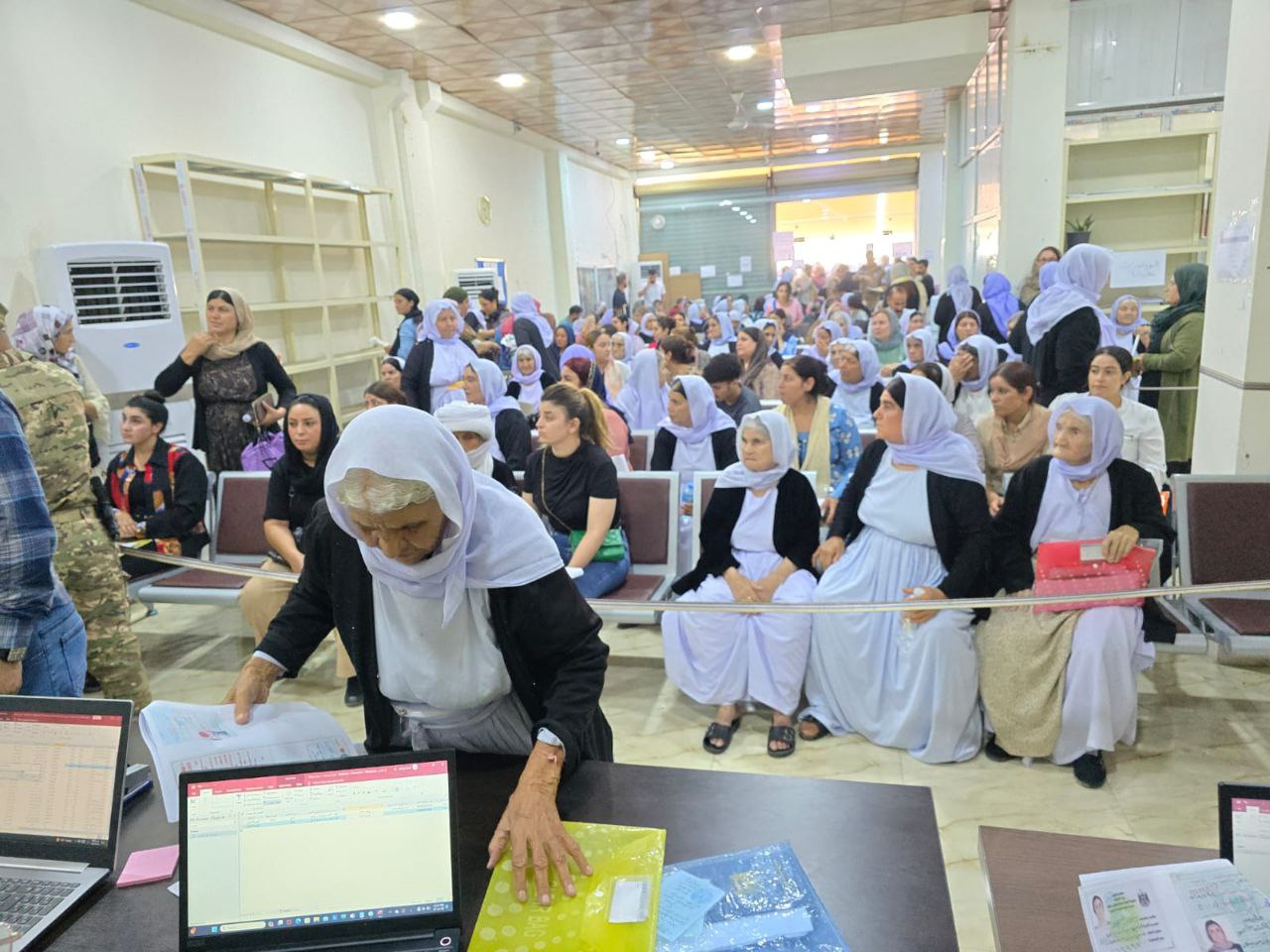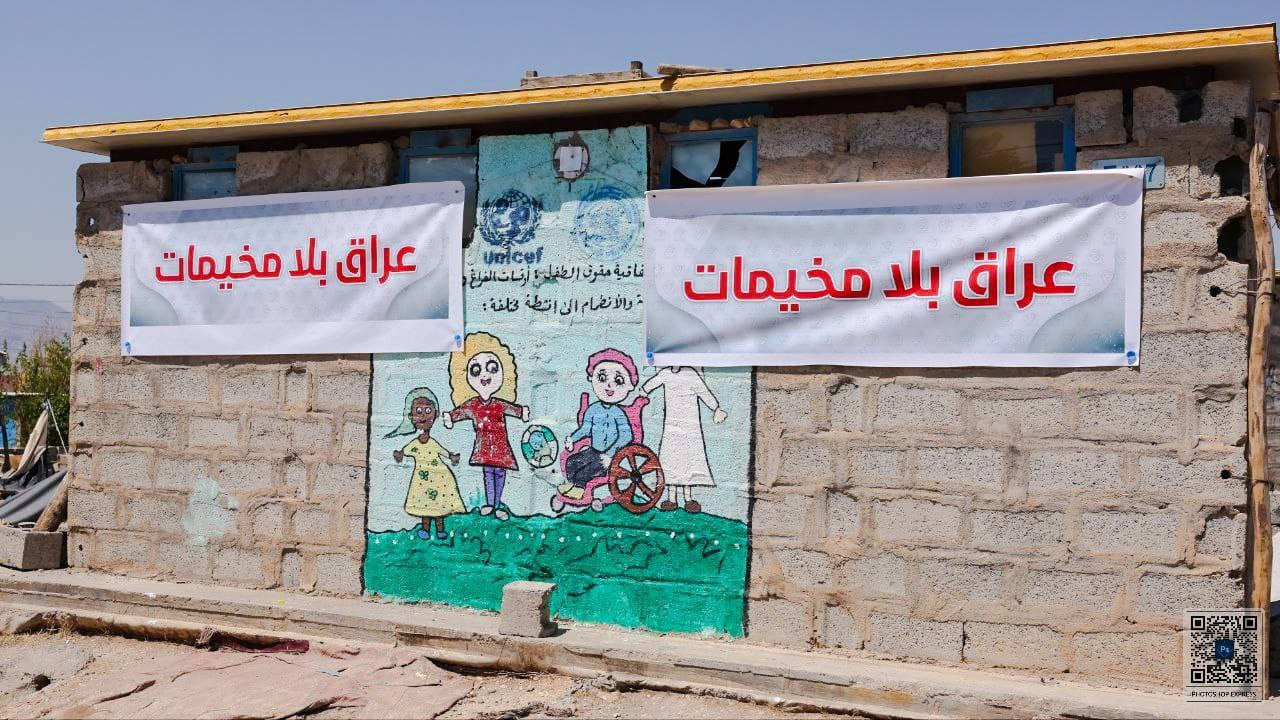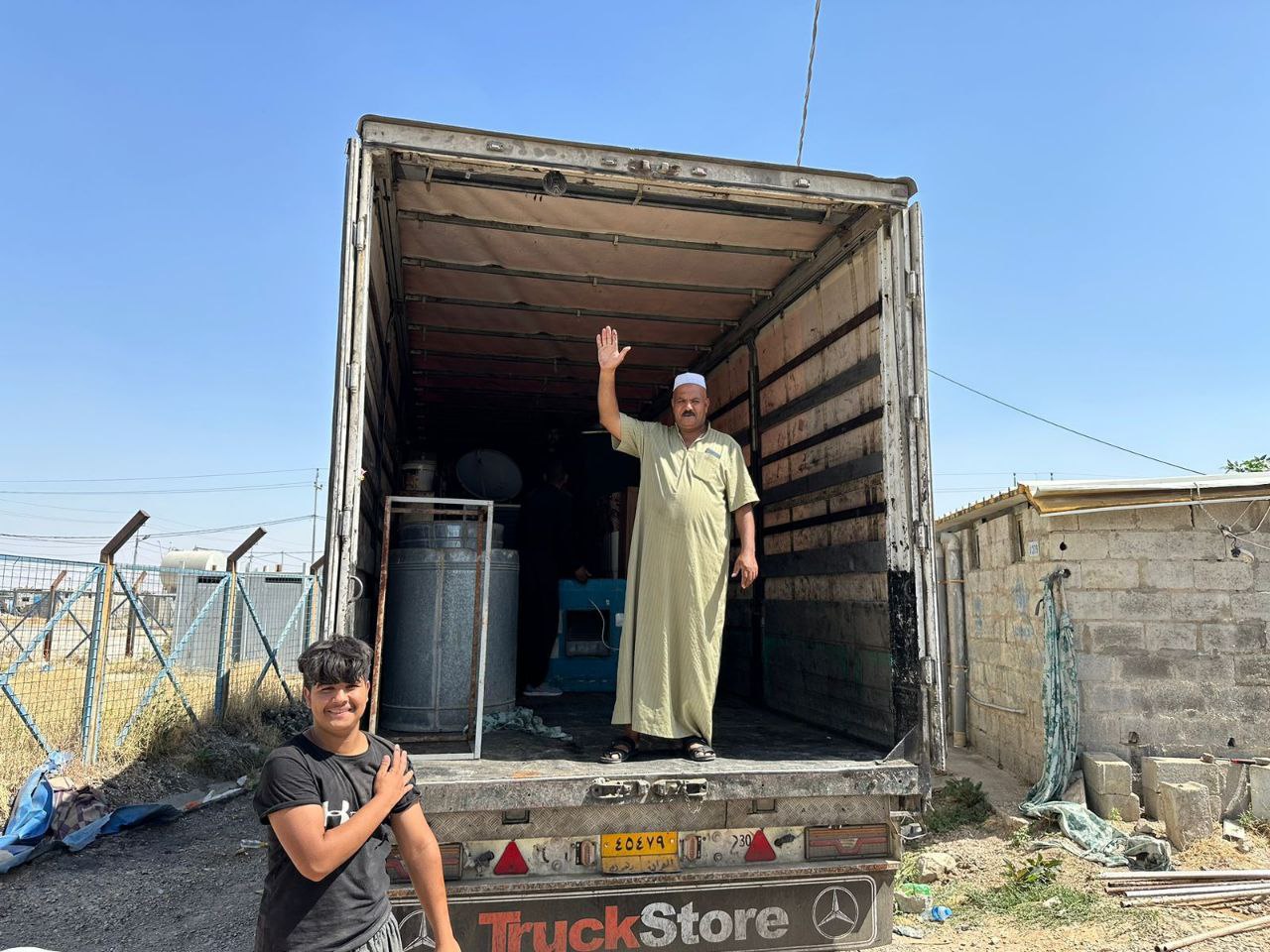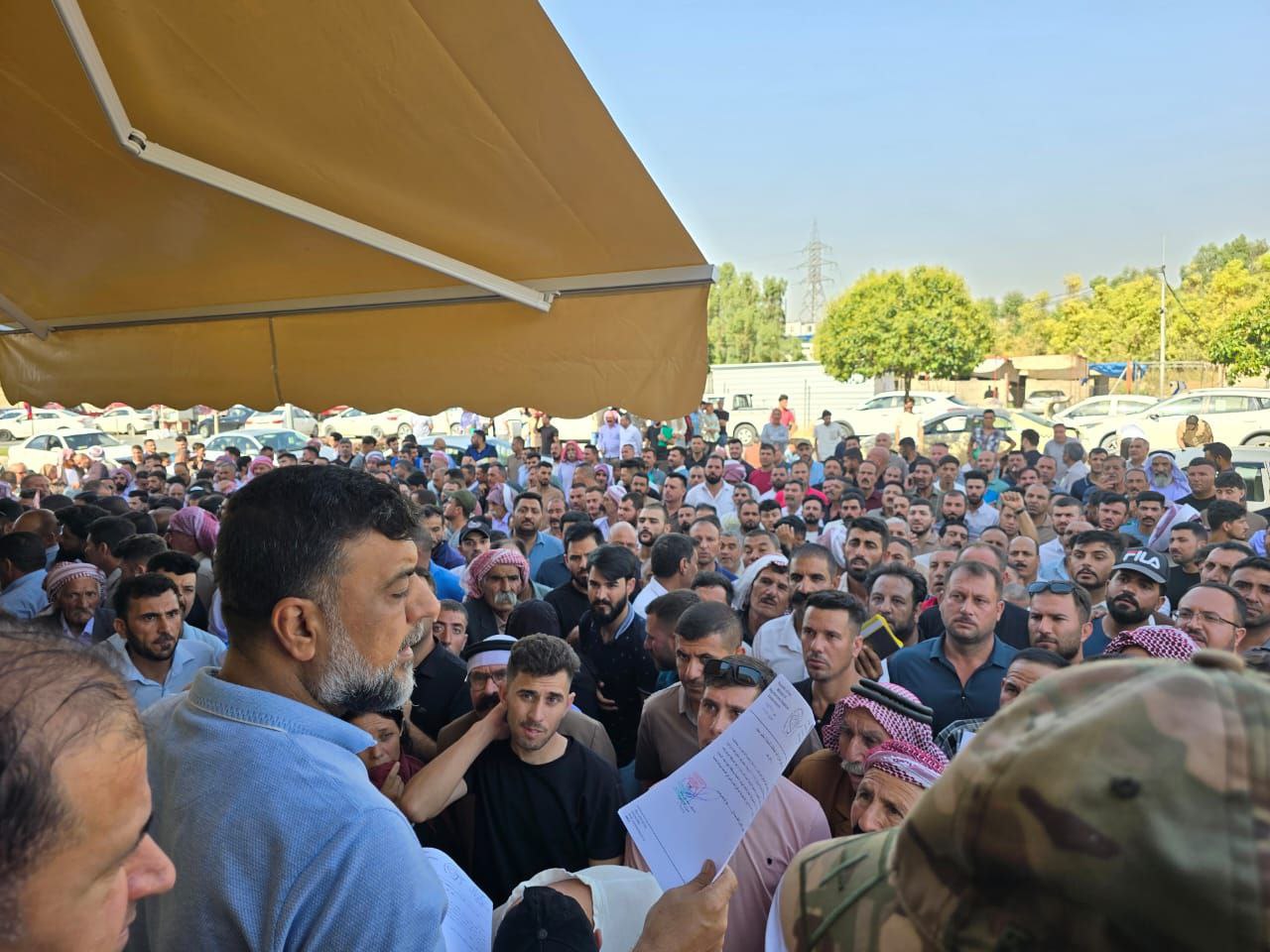Haider Murad has been waiting for seven hours twice a week in a long line waiting to complete the procedures to return home after years of displacement.
The Iraqi Department of Immigration and Displacement has stopped distributing financial grants to those Internally Displaced Persons IDPs wishing to return due to its inability to accommodate their large numbers from July 10th, and is now looking for an alternative solution.
Murad was displaced from Shingal (Sinjar), home for the non-Muslim Ezidi (Yazidi) community, to the Kurdistan Region of Iraq KRI in 2014, and believes that the time has come for him to return to his home.
“I went to the migration office twice early in the morning, but I could not get the letter to close my file as a displaced person, even though I waited 6 to 7 hours under the hot sun.”
The Immigration Department in Dohuk completed the procedures for 637 displaced families in one day, according to a statement published by the Iraqi Ministry of Immigration and Displacement on July 9, the day before the department stopped its work.
Iskandar Muhammad Amin, Director of the Department of Immigration and Displacement, Dohuk Branch, told (KirkukNow), “Since July 10, the department has stopped registering the names of those wishing to return. The decision is temporary and is due to the emergence of crowding and the escalation of protests.”
He explained that a special committee will be formed in coordination with the Kurdistan Regional Government KRG to take measures for a new initiative aimed at facilitating the return of IDPs.

There are more than 600,000 displaced people in the KRI, some of whom are distributed among 26 camps, 16 of which are in Dohuk, where 26,000 families live, most of whom are Nineveh residents, especially from the Ezidi component of Shingal District, according to statistics from the KRG’s Joint Crisis Coordination Center.
“There are many procedures for closing the displacement file, and they (the Immigration Department) must help the displaced,” according to Murad.
The Ministry of Immigration raised the financial grants provided to displaced persons wishing to return from one 1.5 million Iraqi dinars IQD (USD1,000) to four million dinars, in addition to distributing household supplies and some other benefits such as appointments and social welfare salaries, with the aim of encouraging the displaced to return home and shutthe camps.
Nour Suleiman, an Ezidi IDP who has been residing in the Bagid Kandala camp in Zakho district for 10 years, has not processed the return procedures.
“We knew that there was great crowding at the immigration department, but this is not the only reason. We do not want to return now because our house in the Siba Sheikh Khadr complex is destroyed and it is no suitable for habitation.”

According to KirkukNow's observations, some of the IDPs are reluctant to return for lack of security, stability public services and job opportunities. This coincides with the Iraqi government intensifying its efforts to close all camps in the KRI by the end of July 2024, based on the decision of the Iraqi Council of Ministers.
The Ministry of Immigration and Displacement indicated in more than one statement that there are obstacles to the return of displaced persons, and placed the blame for this on the KRG, accusing it of preventing its teams from entering the camps for the displaced to complete the return procedures.
The Director of the Immigration Department in Dohuk said, “The Ministry of Immigration has addressed the Ministry of Interior to allow our teams to enter the camps to complete return procedures. This will reduce congestion in front of the Immigration Department,” Iskandar Muhammad Amin said, stating that completing one transaction takes at least 15 minutes.
All camps for the displaced people in Iraq have been closed, except for Dohuk and Erbil camps. On July 11, the Iraqi Ministry of Immigration closed four camps for displaced people in Sulaymaniyah Northern Province, the last of which was the Ashti camp in Arbat district.
Pir Dian Jaafar, Director of the KRG Department of Migration, Displacement, and Crisis Response in Dohuk, told (KirkukNow), “At all, we did not prevent any of the Ministry of Migration teams from performing their duties inside the camps. On the contrary, we cooperated with them,” and pointed out that his department grants each displaced family has an official letter from the camp administration in order to complete its transactions.

The displaced people in the KRI suffer from many problems, including the absence of financial aid and the scarcity of drinking water and other basic services after that most international aid organizations stopped their operations in the camps.
“A committee will be formed between Baghdad and the Kurdistan Region to solve the problem of congestion and the problems that hinder the completion of return transactions, but no meeting has been held yet and we do not know what the procedures will be,” according to Pir Dayan Jaafar.
The KRG has repeatedly stressed that it doe not support closing the IDPs camps and wants the displaced to return “voluntarily and after the reconstruction of their areas and the return of stability to them.”
On the other hand, the Iraqi Ministry of Immigration resorted to the Federal Court to implement the decision to close the camps by the regional government, and next August 11 was set to determine the case.
Faisal Khalaf, seeking to return after spending 10 years in displacement, but his name is not registered by the Ministry of Immigration and he fears that he will be denied the financial grant.
“I checked with the Immigration Department three times, and they told me that my name is not in the Ministry’s records, so I cannot obtain the financial grant.”
More than one thousand families have complained since the beginning of this year that their names were not included in the ministry’s records, but Muhammad Amin confirmed that his department will work to address the problem so that all families can benefit from the grant.
In just two months, more than 5,000 displaced families have completed their return procedures, and so far half of them have received the grant amounting to four million IQD.
Six million Iraqi citizens were displaced from their areas due to the Islamic State of Iraq and Syria ISIS war and the military operations of the Iraqi forces in the period from 2014 to 2017, and according to statistics from the International Organization for Migration IOM, over one million people are still living in displacement, including the displaced people residing inside the camps of the KRI.





